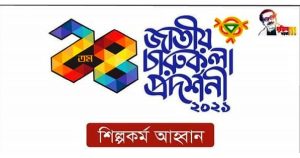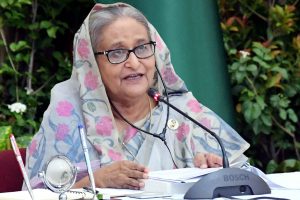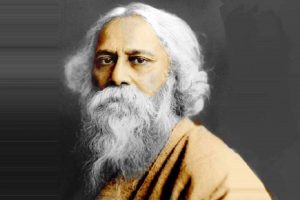Himu Akram is one of the most prominent playwrights of present day Bangladesh. As Himu can place a very simple story extraordinarily, familiarity of Himu amongst the spectators is very high. Himu Akram, has grown as a technician of dramas to his present state. But who is Hmu? Now undergoing training in North Carolina, USA he talked to GreenWatch Dhaka. Excerpts:
“While I speak about myself, I would like to refer me as a drama lover. I stay awake for the drama. Move from here to there. My dream characters always detour in me, around myself. Here is their long journey with me. I discover me inside of the intense from time to time. There is no existence of nearer one in that intense. Don’t have friend or relative. Only the pen and paper accompany me in the night. Night goes to dawn in that intense. As the morning sun shines on table, the intense goes to be over. I discover script of a fresh drama, a bright dream, a story of smile and cry.
 “I have grown up in Noakhali. I have passed my whole childhood and boyhood in the tiny but my dearest town Maijdicourt. My childhood covers kiting on the roof of buildings in the government residential area, playing football in the field, swimming in the wide waterbody. It is the story of Avirampur, story of my village. I passed my whole daytime searching for bird nest. Once it was evening in that village, voice of fogs and grigs create melody over the whole area from yard, veranda and home. I was grown up there.
“I have grown up in Noakhali. I have passed my whole childhood and boyhood in the tiny but my dearest town Maijdicourt. My childhood covers kiting on the roof of buildings in the government residential area, playing football in the field, swimming in the wide waterbody. It is the story of Avirampur, story of my village. I passed my whole daytime searching for bird nest. Once it was evening in that village, voice of fogs and grigs create melody over the whole area from yard, veranda and home. I was grown up there.
“I started my career with script writing. The very first published story is “Opekkha”. It was published in the Weekly “Jai Jai Din” 15 years before. A different world of playwright Himu Akram started after publishing the “Opekkha”. Then, there was long time. Dohon, Jolete Jol Torongo, Shesh Bikele Ami, Keu Keu Eka, Jewna, Lamp Poster Niche, Ekla Dupur, Choitali Megh, Sedin Aseni Keu, Ghunpoka and many stories was being published one after another. At that time, Himu was a emerged as a name in the page of literature of national dailies of the country. Two of my books published by Oitihya earned popularity amongst readers. The two books are, “Se Rate Brishty Silo”and “Kisu Jol Kisu Shunoita Ghire”. I am a writer and somnambulism.
“Basonti Ronga Sharee” was the lighthouse for me as a Director. It was the first drama composed by me. Staff producer of ATN Bangladesh produced it. Then, producer Belal Ahmed produced “Upokul Express”. It is my most favourite story. As producers produced the drama composed by me, I started dreaming to be a Director. I started dreaming to taking shots of the characters of the story by camera. Name of the said dream is to be a Drama Director.”
Q: Did you get any institutional training?
A: “Before direction of the drama, I completed two superb courses from the ‘Film Archive’ and the ‘National Mass Media Institute.’ Then I introduced myself as Assistant Director to Producer Ferdous Hasan. After working for only 11 months as Assistant Director, I gathered experience of 200+ dramas, single as well as serial dramas. Lastly, I ran to the sea. I produced a drama of dream named “Sagor Dakise Tare”. My first dream, first love and first production ‘Sagor Dakise Tare’.”
Q: How you would describe the role a director is supposed to play?
A: “Expectation of the producer is, in my view, to cover a story in camera to deliver to the thousands of humans. In this case, the story shall have to be good. A drama can’t be ended with only laughing/smiling/crying/weeping. One producer can be successful only when he will have control over the production and the theme of the story. In a nutshell when a director produces any drama or cinema based on his own concepts, it no longer belongs to him at the end of the day. It goes to the possession of spectators. So, the role of the director is most important. It is an art of a director to stay longer presenting an exclusive production of a nice story without befooling the spectators.”
Q: How would you describe direction style?
A: “I prefer to produce more comedy drama. I never use extra-dramatic scene or hard dialogue. As a result, all classes of people understand my drama, and can laugh. Regarding art of production, I would like to say that, I show such locations in drama for which people move to see the drams in TV Channels. Besides character of my dramas, there will be meander river, lines of Palmyra beside the clay-road, tea stall beside the street, market under banyan tree, I also show the lanes, by-lanes of Old Dhaka, skipping, plunging of monkey, hut of rickshaw painter. As a Director, my style is to use outlandish and funny locations as well as to provide with funny tale.”
Q: What’s the hardest part of direction?
A: ‘The hardest part of the direction is casting role. If it could not be possible to select perfect artist considering the character as per the type of tale, the drama would not be good. An exclusive tale can go in vain due mistakes or errors in production. On the other hand, a very simple and ordinary story can be extraordinary due to selection of perfect role makers. One producer can select the right casting when he has the theme of the drama in his mind. So, the producers shall have to understand the script first. This is the hardest part of the direction, I believe.”
Q: What is your view on the present state of drama making in our media industry?
A: “The present condition of the drama production is now obviously better. The producers are investing more because of the better condition. The directors are making the dramas. We have a lot of directors, new and old, for whom spectators keep waiting to see dramas. Our dramas are so interesting that spectators see those devotedly even after the disturbance of advertisements. Many educated boys and girls are now coming forward to produce drama. They are coming to work with understanding of the camera, light, acting, editing and script writing, and also producing astonishing dramas for the spectators.”
Q: Do you find any of your dramas that can be called remarkable?
A: “My remarkable and significant works are single dramas namely, Jolchhap, Tahara Sonnashi, Ronger Songshar, Managing Director, Alal Dulal Nepal-e, Senior Artist, Kabab me’ Haddi, Dhandabaj, Prem Lal Misthanno Bhandar, Tipu Sultaner Hati, Bahattor Ghonta, Gentleman, Suruj, Palki etc. In case of the serial, my most popular dramas are Golmal, Joynal Jadukor, Pancha Premik, Najir Bihin Nojor Ali. Beside drama production, I produce advertisement. Keya Washing Powder, Jhajh Chanachur, Softy Tissue, Udayan Purbachal City, Ramio, New Way, ICL Drinking Water, PRAN Juice, RFL are remarkable advertisements produced by me.”
What are you working on, what are your forthcoming projects?
“My Mega-Serial ‘Nojir Bihin Nojor Ali’ is being broadcast in RTV. It is being aired four days is a week. I am also going to start two other mega-serials named ‘Mushkil Asan Company’ and ‘Habilder Talkies’ from my production firm ‘Juboraj Films’. My production firm is taking preparation for producing TVC, Drama and film in the United States of America. My production firm has worked in the USA. My first movie ‘Dui Batpar’ will be produced by Jubaraz Films USA INC.”




